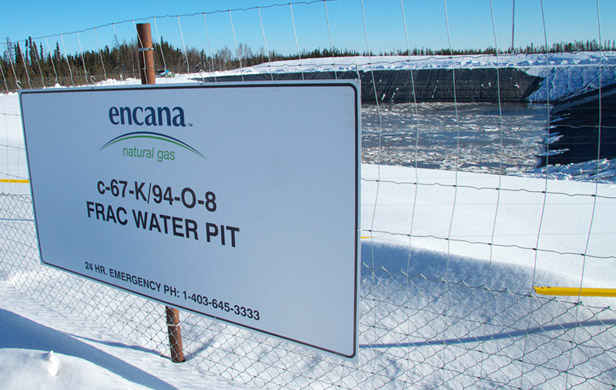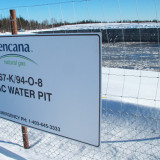
By Anna Novacek – republished from Energy Law BC
As the only province in Canada that does not regulate groundwater use, BC has been referred to as the “wild west” of groundwater.
Groundwater has and will continue to be relied on heavily by the LNG industry as a key source of the extensive amount of water necessary to conduct hydraulic fracturing. While the amount of water will vary between wells due to the changes in geology and the size of the reservoir, the volumes can be immense. EnCana Corp. states that between 200,000 and 1.2 million litres of water (roughly 1/10th to one half of an Olympic swimming pool) is needed to complete one well.
Surface water is regulated by short term water use approvals found under Section 8 of the Water Act [RSBC 1996] c. 483 (“the Water Act”). Surface water licensees are required to use water in accordance with the Water Act, the terms and conditions of their licence, and to pay annual water rentals. None of these requirements currently apply to groundwater users, even those using it on a large scale.
With a legislative proposal for a new Water Sustainability Act, however, this may be changing.
Updating century-old Water Act
BC’s current Water Act is 104 years old. The Water Act Modernization process began in 2009, and has included on-going workshops and consultations with the public, First Nations and stakeholders, resulting in a Water Act Modernization Report on Engagement in September 2010, and a Policy Proposal for the new Water Sustainability Act in December 2010. The original plan was to introduce the new Water Sustainability Act in 2012; however the “complexity of developing legislation with widespread implications for British Columbians” resulted in delay.
Public feedback sought
On October 18th, 2013 the province released a legislative proposal for a new Water Sustainability Act. A summary of this proposal can be accessed here. The proposal is open for public feedback until November 15th, 2013. It is expected to be submitted to the legislative assembly as a bill in 2014 for debate and final approval.
Key changes
The changes to provincial regulation of groundwater outlined in the legislative proposal for a Water Sustainability Act include:
- Large volume users would be required to obtain authorization and pay application fees and annual water rentals to access groundwater. Groundwater use for ‘domestic purposes’ would generally be exempt from this requirement
- Information will be collected from all well owners to help improve understanding of aquifers and how they interact with lakes and streams
- A database of all groundwater wells in the province will be established to help inform future water allocation decisions
- The minimal standards under the Ground Water Protection Regulation BC Reg. 299/2004will be expanded to require the mandatory submission of well records for new wells, as well as requiring testing and disinfection of a water supply well after drilling to reduce the risk of contamination, and guidelines for ensuring contaminants are stored away from water supply wells.
- The requirement regarding well drilling and the protection of groundwater will be updated. It is proposed that the WSA would clarify that drilling into or penetrating an aquifer is a ‘disturbance’ and requires a qualified well driller.
The complete legislative proposal is available here.
Devil’s in the details
The key question is whether the new Water Sustainability Act will be designed to restrict or minimize groundwater use in any way, or instead focus more on initial approvals, the provision of information and increasing reporting requirements. The application of exemptions within the new legislation will also be an important factor determining how industry will ultimately be affected.


If licensee holding water rights is American or has American investors, full NAFTA righs apply, including Chapter 11. Any new legislation must explicitly include a legally binding waiver of all NAFTA rights by every licensee as condition of issuance.
Geeezzzz… don’t post this kind of stuff on-line! If Christie sees it, she’ll shut down the overhaul to the Water Act so that it doesn’t upset big oil.
I really hope that they regulate how much a company such as Nestle’ can pull out of the ground for profit. It is never going back in to that area to replenish what they take.
I do hope they also put in regulatory rules on industrial uses such as fracking that consumes so much clean water and puts poisoned water back in to our aquifers and poison the waters in the area without ever being held responsible for the damage.